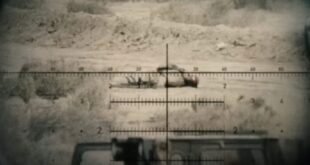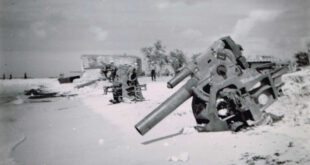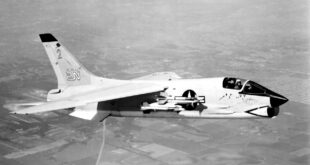by Heath Hansen
I take my seat on the train. I’m in the Southwestern part of Drenthe, on the way to Amsterdam, so I’ll be on this ride for a while. As the train departs, I pull out my headphones, and a familiar tune fills the speakers. Rooster, by Alice In Chains, about combat in Vietnam. I reflect on the lyrics and consider how it might have actually played out, in the jungle…

As the platoon continued its movement through the thick, green foliage, the jungle suddenly grew still. The slithering of creatures ceased, the chirping of birds quieted, and the sound of the wind moving through the thicket was no longer perceptible. The troops scan through the haze to their front and their sides, but observe nothing irregular. Suddenly, the distinct “pop” of AK rounds prompts them to hit the ground, and impulsively return fire.
The squad leader at the head of the formation calls out enemy positions to his troops, as the platoon leader gives a SITREP to the commander over the radio. The grunts send 5.56 rounds down range, but the enemy fire becomes overwhelming. More and more muzzle flashes appear in front of them; bullets whiz over their heads, and an explosion a few meters to the left of the squad leader indicates their position is now locked in for enemy mortar fire. One of the grenadiers takes a large chunk of shrapnel, and is quickly bleeding out.
“Get the fucken 60 up here NOW!” barks the squad leader to the rear elements. A rifleman begins applying pressure to the site of the wound on his buddy, as he looks up, and sees one of the machine-gunners heading towards his position – bullets screaming towards him from somewhere.
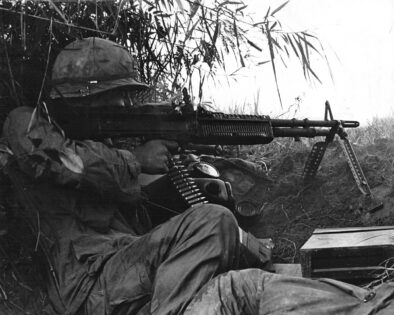
American soldier with the 101st airborne in Vietnam, with an M60.
“Yeeeah! Here comes the Rooster!” he exclaims in pure relief. “You know he ain’t gonna die!” the squad leader laughingly chimes in, grinning, as he watches the wiry soldier dart past him, carrying The Pig, and a long belt of ammunition.
The machine-gun man emplaces the gun and begins laying down fire. The assistant-gunner readies more ammunition and notices movement further to the right. He points at them, “Here they come to snuff the Rooster!” he jokingly yells. Rooster rotates the weapon slightly and mows the enemy soldiers down. “Ain’t found a way to kill me yet,” he replies, winking at the assistant-gunner.
His eyes burning, he wipes them with his sleeve and glances over to mournfully watch his buddy’s dying breath. His resolve reignited, Rooster sends more machine-gun bursts down range, and the enemy soldiers break contact. The jungle is still again, for a moment, before returning to the natural ambience of the bush. This unit, from the 101st Airborne Division, lives to fight another day – short one comrade – in the vast jungles of Vietnam.
As the sun makes its way below the horizon, the platoon gets into a patrol base, redistributes ammunition, and readies for the night. Rooster lays behind the M-60 and pulls something from his front pocket.
He shows pictures of his boy to his squad-mate in the moon’s illumination. Nearby, the medic maneuvers his way through each fire-team on the edge of the patrol-base, checking for injuries and reminding guys to take their chloroquine pill. Rooster reaches into another pocket and grabs the pill, looks at his buddy, and sarcastically says, “Got my pills ‘gainst mosquito death,” as they smirk and quietly take a sip from their canteens.
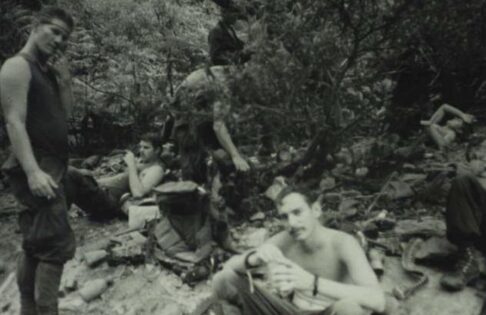
Men from the 101st Airborne in Vietnam.
The platoon heads back to the firebase the following day. In the hooch, the guys talk about things back in the States. Rooster wanted the American dream – a family and a pet. But, now that he was experiencing combat firsthand, he realized Army green was no safe bet. From news tidbits, hearsay in the platoon, and talking to his buddy, the anti-war movement was gaining popularity in the States. In a moment of self-reflection, he tells a squad-mate he was unsure of what he’d do if “they spit on me in my homeland.”
A day later, the platoon leaves base-camp, and heads back into the jungle. Rooster looks into the dense growth. The platoon receives a radio message as the patrol begins: “Large enemy element with heavy weapons spotted in your sector.” A chill runs down the spine of everyone within earshot of the radio. Rooster looks up through a clearing in the jungle canopy, and prays that God will help him make it through.
The grunts adjust their equipment, some of them tightening their helmet chinstraps, and continue their mission into the unknown.
Jerry Cantrell Sr. served as a machine-gunner in the 101st Airborne Division during the Vietnam War. After his second combat tour, he returned home to what would become a broken family. The oldest of his three children, Jerry Cantrell, became a founding member of the iconic Grunge band Alice In Chains. In 1992, the album Dirt included the song “Rooster.” This name was given to Cantrell Sr. by his great-grandfather because of his cocky attitude and a tuft of hair on the top of his head. Cantrell wrote the song as a dedication to his father, and to rebuild the relationship between them. When the younger Cantrell asked his father if the song captured the spirit of his service, the veteran stated, “You got too close – you hit it on the head.”
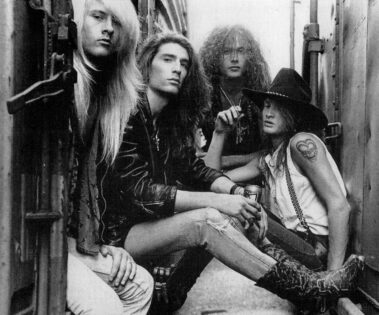
Alice In Chains, 1988.
Heath Hansen is a correspondent for Soldier of Fortune. He frequently covers cartel activity on the U.S. southern border.
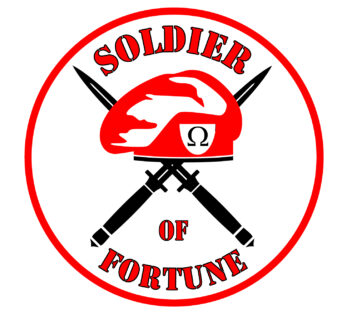
 Soldier of Fortune Magazine The Journal of Professional Adventurers
Soldier of Fortune Magazine The Journal of Professional Adventurers



